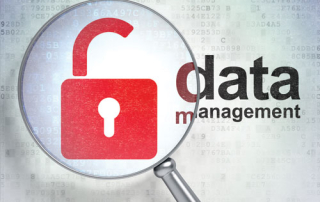How Does Workflow Work?
Electronic Document Management Systems (EDMS) offering an integrated workflow engine or integrating the workflow engine, with various workflow products readily available throughout the industry.
Electronic Document Management Systems (EDMS) offering an integrated workflow engine or integrating the workflow engine, with various workflow products readily available throughout the industry.
That type of “adverse inference” instruction could easily tip the balance of the entire litigation. So, beware. Failure to maintain all the records of your organization whenever there is a reasonable anticipation that litigation will ensue can seriously damage even the best of cases.
Cost-shifting in federal E-Discovery cases after a party prevails has hit a significant road-bump in the federal courts under the Fourth and Third Circuits Court of Appeals. Both appellate courts have now held that the costs available under 28 U.S.C. sec. 1920(4) are limited to the actual costs of making copies of records — not all the activity leading up to the copy.
You gotta look under the hood and check out the underlying assumptions in all of those funkly Excel cells. You can bet at least 2 leading economists will ask someone to look at their Excel spreadsheets next time.
From a trusted electronic content management professional’s perspective – it may just be one more type of storage media. But, wow, does it come with a host of questions: what are the standards against which DNA that stores media should be measured?
ECM Systems are way more than just a file cabinet for your electronic files. Today almost all of our business documents are created electronically, as well as transmitted, acted upon, edited and stored in an electronic format. In many cases “documents” never reach a physical or paper form – the entire lifecycle is spent in electronic format.
AIIM, ANSI and ISO international standards for trusted systems, time and again the questions from ECM customers were focused in two areas we find the same in the US: 1) how do we start a project to develop an Enterprise-wide content management (ECM) system; and 2) how do we get our employees to embrace ECM technologies?
If employees in your organization are spending more and more time searching for documents in the electronic or “virtual” storage spaces; or maybe they are getting creative to find that critical report yet still coming up short, you may want to put that dog on a leash and gain some control over the organizational information.

When the evidence of debt is challenged in court, many credit card companies are unable to meet the burden of “authenticating” their records – showing that the debt claimed to be owed them is accurately portrayed by the ESI records being introduced into evidence.
California is leading the way in defining how local governmental agencies should maintain official records in an electronic format in order to ensure they are reliable and trustworthy. The state adopted regulations specifying that official electronic records must be maintained in a trusted system, as defined by AIIM/ANSI standards, specifically meaning AIIM’s Recommended Practices ARP1 (2009).